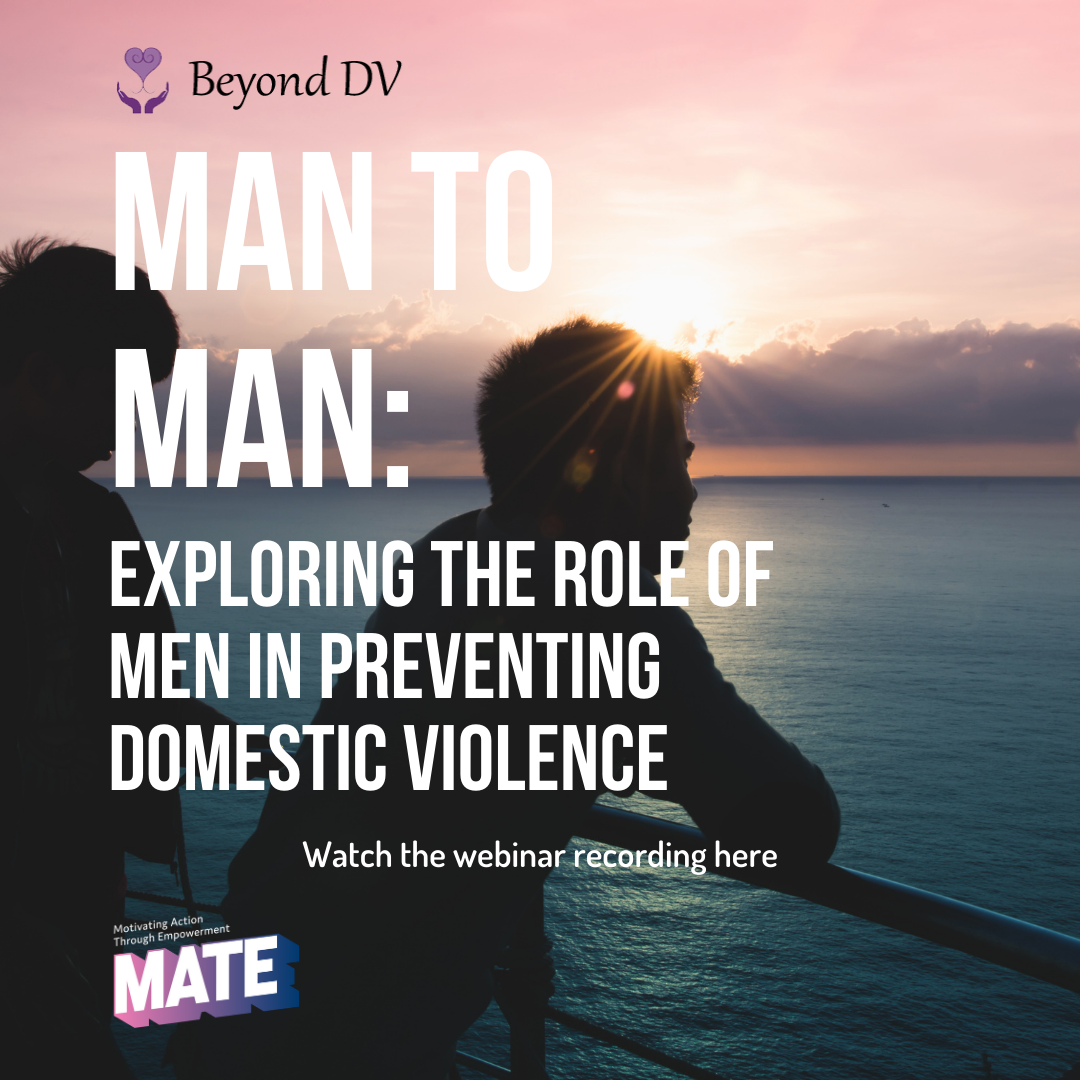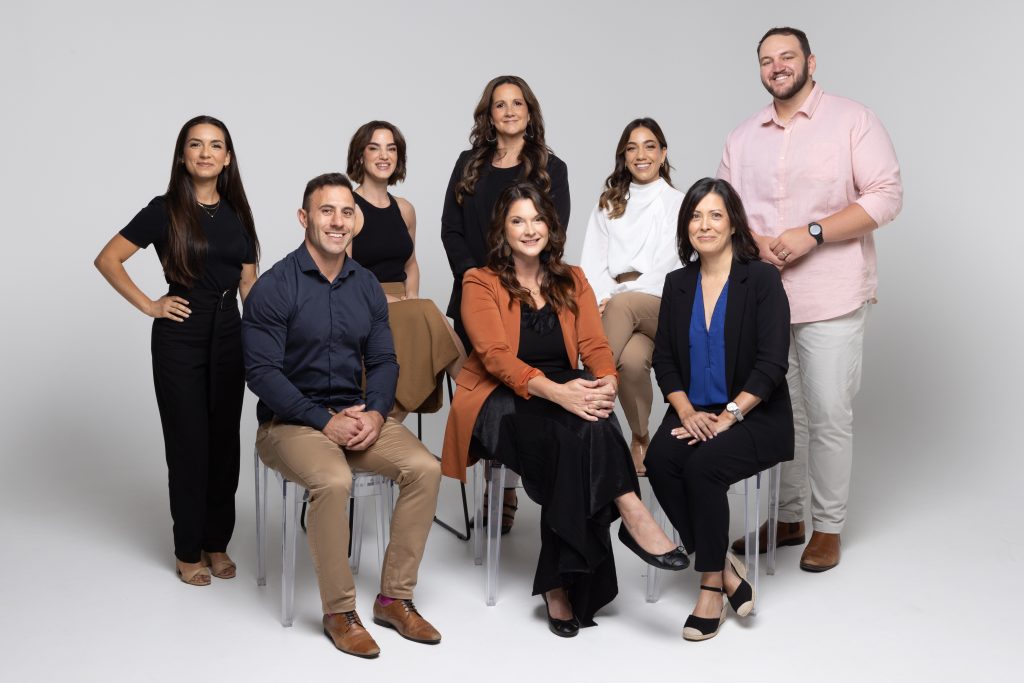Content Warning: The content of this blog and the included links may be confronting, and they may cause distress. Please use your discretion and practice self-care. Please visit this link for information about support services.
When Beyond DV and MATE got together to discuss bringing an event to the public, it was never in doubt that we wanted to discuss the many ways men can positively contribute to the elimination of violence against women. We knew that putting together an event including men, for men, wasn’t exactly ground-breaking, but what we discussed at that event just might be.
We had the following questions in mind… Where do we start in bringing men into a space that for so long has been considered ‘a women’s space’? How do we gently motivate good men to #besomeonewhodoessomething and recognise their capacity to contribute to positive cultural change? How do we mobilise these men to create change, redefine what it means to be a ‘good man’ and build the courage to do so?
Like everything in 2020, the event happened 6 months later than originally planned, and via virtual format rather than face-to-face. However, it shows that this was the way it was always supposed to be. COVID-19 has provided significant challenges to the domestic violence sector and the swift, decisive response to the pandemic has shown us what is possible when it comes to prevention. All of which was vital to be discussed in this webinar.
The panel moderated by Kay McGrath (Co-Chair, QLD Domestic Violence Prevention Council) included Matt Brown (She Is Not Your Rehab), Michael Jeh (MATE Bystander Program and former first class cricket player), Lloyd Clark (Small Steps 4 Hannah) and, Brad Chilcott (White Ribbon) . They all provided us with a conversation that was moving, inspiring and perfectly provocative in the context of 2020.
Matt Brown co-founded She Is Not Your Rehab with his wife Sarah and launched the concept in his 2019 TEDx talk. He says the movement is simply an invitation for men to acknowledge their own childhood trauma and to take responsibility for their healing so that they can transform their pain instead of transmitting it on those around them.
It is our belief that there was not a viewer or a person in the room during this event who was not moved by Matt. Matt shared moments of true progress through the work that he does with men in NZ, and why that work is so desperately needed.
In this conversation Matt shares his view on ‘calling people out’ for abuse or problematic behaviour, and that when we shift our perspective from ‘calling people out’ (which may be quite surprising or shocking to the other person) to ‘calling people forward’ – we shift to a position of providing hope – he says when we call forward, “we show that we believe that we can be more than what our culture has taught us or nurtured us to be…. When you call people forward and create a narrative or show them a different window to life than what they have always seen, why wouldn’t you want to walk towards that? Why wouldn’t they want to be a better father or a better friend? Calling people forward shows that we believe that men can change.” Matt also beautifully says “We may never see the seeds that we plant. We may never eat the fruit from the seeds that we plant. But hopefully our children and our grandchildren will”.
Michael Jeh is a passionate speaker, educator, and facilitator on the prevention of violence against women. Michael is frank, honest, and willing to challenge your thinking – wherever your ‘thinking’ currently is – in order to consistently evolve. He recognises that the fervour with which he talks now about this issue, would not have been visible in his 20s – it has come with time, confidence and courage. It is our hope that we can empower young people with the skills it has taken Michael years to learn. It just might start with communicating Michael’s view of courage. He says “Courage is not instinctive. It is a practiced skill. You just get better and better at it. You fail a few times, you fall on your face, you try again. It is a learned skill.” Michael says that this courage is needed to “create environments and cultures that allow men to think and feel in a way that is different to the way they have been told to think and feel”.
When it comes to courage, that of Lloyd Clarke cannot be disputed – for being willing to participate in this conversation – and share his experience so openly. Since the loss of his daughter Hannah and her three children at the hands of her ex-partner in February 2020, Lloyd and his family have been on a quest to honour Hannah, Aaliyah, Laianah and Trey and ensure that no family should endure this pain again, the Clarke family have started a movement for change – Small Steps 4 Hannah – to put a HALT to the incidences and severity of domestic and family violence in Australia. When asked during this conversation where the change needs to start, Lloyd said “I think change can come from us out there, having the conversations and providing education – it’s us guys that are out there now, who are talking to the men, trying to talk to people, trying to educate the community, we’re the ones that are going to get the ball rolling. Which is one of the reasons we started Small Steps 4 Hannah, take small steps and hopefully, eventually, it’s going to be strides”. Lloyd also redefines the traditional idea of what it means to “be a man” by stating that it is about looking in the mirror and acknowledging what you are doing to your family, seeking help and committing to change the cycle.
Brad Chilcott, newly appointed Executive Director of White Ribbon solidified during this conversation that he is passionate about education, culturally appropriate and community by community services, as well as the impact of cultural attitudes. Brad’s perspective is holistic, with prevention being front and centre in his approach. Brad offered this advice to viewers about role modelling change: “One very simple thing that men can do, all of us, is to simply listen. Listen to the women in our lives. Like really listen. Listen about how they experience life in a patriarchal system, listen to the way they experience the lack of role models in the careers there are aspiring to achieve, listen to how they experience our behaviour when we get angry and exert our power. And pause with humility and actually think about that. Think about how we would feel if our partners tried to influence or control us the way we do them?… It sounds simple but pausing to listen and reflect with humility will go a long way towards change.”
We could not have asked for a more complete panel, coming at this conversation from diverse perspectives and allowing us to hear their views as they relate to their personal experience and context. We discussed topics that are very rarely spoken about in circles of men: the violent effects of patriarchy, the impacts of men’s addiction to power, creating cultures where men feel safe to share their vulnerability and shame, and importantly, the idea that change is possible.
Our key take-aways:
-
Amazing people (predominantly women) have worked tirelessly in this space for generations, to get us to where we are now. What we know at this point is we cannot do it alone. We need men to join the work, to recognise their ability to become effective bystanders and be the change.
-
Our culture – the way the talk, laugh, socialise, consume media, all contributes to a culture that enables violence-supportive attitudes. Yet, we ALL have the ability to shift this culture.
-
Courage is key… There is no illusion that these conversations are easy, and considerable courage is needed.. until the day that these conversations are not considered ‘courageous’, rather they’re considered the norm.
View the full recording here. Continue this conversation in the comments on FB or Instagram and share your thoughts with us!
Thank you once again to Beyond DV, Telstra, Taleka, Australia’s CEO Challenge and The QLD Government.


